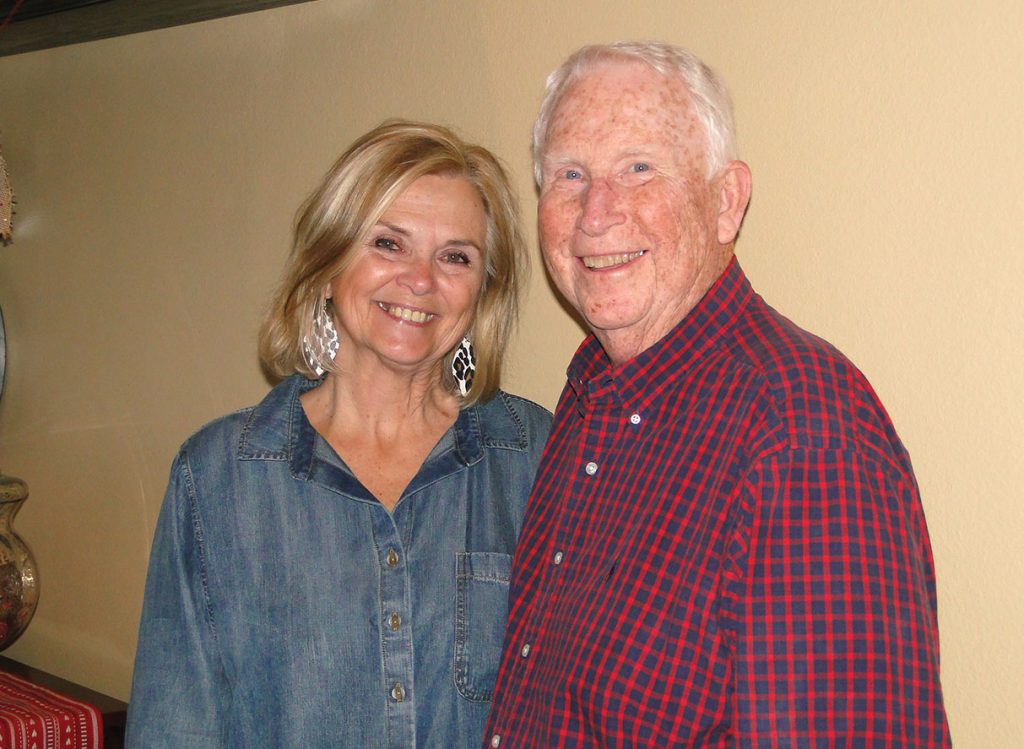
Family: Sons Joe Don, Charles, Taylor; daughter Alicia Axton; and six grandchildren Tyler, Quinton, Ally, Carlie, Braden and Lee
In Town: “My wife Donna and I grew up in Huntsville, both in the country although Donna’s family didn’t raise livestock,” Dana Sample said. “We are deeply tied to Huntsville and Madison County and strive to return all the community has given us through our careers, churches, and various organizations. A graduate of the University of Arkansas, I started my educational career as a middle school social studies teacher, and served as principal and eventually superintendent. Moving from that position in 2005, I became the transportation director for the Springdale School District. Donna attended Arkansas Tech with a degree in sociology and has been with the Department of Human Services for 45 years. As DHS county administrator she has oversight of all assistance programs. We raised four children who now have given us six grandchildren.”
In the Country: “Throughout our lives together, Donna and I have been flashlight farmers. Challenging careers demanded we downsize in the 1990s.We run a cow/calf operation with 40 heavily Angus-influenced cows bred by registered Angus bulls on 140 acres. A large advantage in downsizing has resulted in better land to cattle ratio. Consequently, we do a better job as grass farmers. Our herd is grass fed, though we do feed grain to replacement heifers and to the bulls for recovery after breeding season in addition to using protein tubs and magnesium supplements year-round. Soil quality is paramount in quality calf production. We lime every seven years, use commercial fertilizer in the spring and last fall spread turkey litter. We purchase the little hay that we need. Spraying for weeds is critical, perhaps even more so than fertilizing. In addition to broadcast spraying, we spot spray for buck brush and wild roses. Over the years, we have evolved to fall calving, striving for uniformity in weight when we turn them over to local Harrison sale barn representative Rick Cartmell. Calves are tagged and castrated within two days of birth. Cattle are worked twice a year with veterinarian Chris France from the Huntsville Veterinary Clinic administering vaccines. The decision to cease hay production on the 40-acre Bermuda field three years ago and graze it instead from May through October has been a game changer, resulting in increased body conditions of the herd and high percentage fertility rates.”
Future: “While we love our busy and diversified lives, retirement will soon allow us to focus more heavily on grandchildren and raising cattle. A future project may be installing more cross fencing in order to develop a rotational grazing system.”






